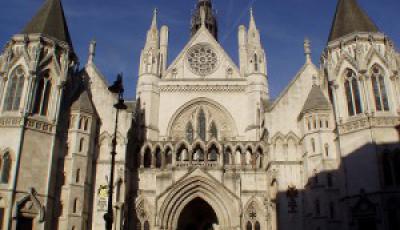UK Court of Appeal Quashes Convictions for Document Fraud against Asylum Seekers
Posted:
Time to read:
Guest post by Ana Aliverti, Assistant Professor, School of Law, University of Warwick
In the recent judgment on 30 July 2013, the Court of Appeal has once again addressed allegations of unsafe convictions against asylum seekers for immigration-related charges.

Lord Justice Leveson in his decision qualified as ‘surprising and disturbing that neither solicitors nor counsel appear to have been aware of the position of the law’ [56]. Because the Court found that the defence against the possession charges ‘would quite probably have succeeded’, it concluded that a miscarriage of justice has been done and quashed the five convictions. This is not the first time the Court deals with cases of this kind. Less than three years ago, it ruled on R v. Mohamed Abdalla and Others [2010] EWCA Crim 2400 declaring three of the four convictions appealed unsafe due to inappropriate legal advice. Despite the strong condemnation of LJ Brown in Adimi in 1999 of the practice of prosecuting asylum seekers for their illegal entry or exit in search for a safe haven, asylum seekers are still being prosecuted and advised to plea guilty to immigration-related charges.[1]
While the Court of Appeal both in Abdalla and Mateta quite rightly placed the blame on the defence for not appropriately advising their clients on section 31, it was not as demanding with the CPS who routinely allow these prosecutions to proceed and with the judiciary who still disregards refugee defences based on a narrow interpretation of the ‘safe country’ rule. Mateta made important progress on this respect reiterating that:
"the fact a refugee stopped in a third country in transit is not necessarily fatal and may be explicable: the refugee has some choice as to where he might properly claim asylum. The main touchstones by which exclusion from protection should be judged are the length of the stay in the intermediate country, the reasons for delaying there and whether or not the refugee sought or found protection de jure or de facto from the persecution from which he or she was seeking to escape (…)." [21(iv)]
Yet, this more generous interpretation of section 31(2) is unlikely to definitely tackle miscarriages of justice against people in need of protection. The main reason why these cases reach the criminal justice system lies on the structure of section 31 as a criminal defence. It is regrettable therefore that the Court did not to scrutinize whether section 31 effectively protects good faith asylum seekers against punishment, as required by the Refugee Convention. By making article 31 of the Refugee Convention a defence rather than a ban to prosecution, section 31 allows successful asylum seekers to be prosecuted and convicted for their illegal entry or exit to the UK. Given that the availability of the defence clings to decisions made elsewhere – by the Home Office or the Immigration and Asylum Tribunal – which takes longer than criminal proceedings, the criminal case is very often sorted without a conclusive decision by the immigration authorities leading to wrongful convictions, as the cases reviewed testify. In fact, all the final decisions granting refugee status in the cases reviewed were made after the defendants pleaded guilty to the criminal charge. But the objection to section 31 goes beyond the temporal interface between asylum and criminal adjudications. By placing the task of deciding on the immunity from punishment on criminal justice actors, that provision contributes to cabin complex cases involving international affairs and humanitarian matters in the narrow categories of the criminal justice with all the repercussions that this conceptual framework bears for people seeking protection.
If the asylum determination is so decisive for the operation of section 31, as the Court’s case-law seems to suggest, that conclusion should lead to question the merits of allowing a prosecution to be instigated or to continue alongside an extant credible asylum claim. The recent decision begs for questions as to whether the cases of wrongful conviction of asylum seekers are merely matters of inadequate legal advice or reveal more troubling problems with the existing law.
Interested in starting a discussion about this topic? Post a comment here or on our Facebook page. You can also tweet us.
* With thanks to Yewa Holiday for her comments on this post.
[1] It is not possible to estimate the number of asylum seekers convicted for section 4 because statistics on convictions for this offence are not disaggregated based on the nationality of the defendant and do not record whether the defendant had claimed asylum.
__________
How to cite this blog post (Harvard style):
Aliverti, A (2013) The Court of Appeal Quashes Convictions for Document Fraud against Asylum Seekers. Available at: http://bordercriminologies.law.ox.ac.uk/court-of-appeal-quashes-convictions (accessed [date]).
Share:








